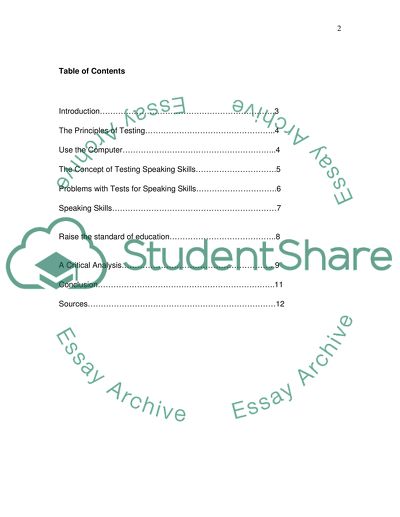Cite this document
(Testing Speaking Skills Assignment Example | Topics and Well Written Essays - 2250 words, n.d.)
Testing Speaking Skills Assignment Example | Topics and Well Written Essays - 2250 words. Retrieved from https://studentshare.org/education/1518228-testing-speaking-skills
Testing Speaking Skills Assignment Example | Topics and Well Written Essays - 2250 words. Retrieved from https://studentshare.org/education/1518228-testing-speaking-skills
(Testing Speaking Skills Assignment Example | Topics and Well Written Essays - 2250 Words)
Testing Speaking Skills Assignment Example | Topics and Well Written Essays - 2250 Words. https://studentshare.org/education/1518228-testing-speaking-skills.
Testing Speaking Skills Assignment Example | Topics and Well Written Essays - 2250 Words. https://studentshare.org/education/1518228-testing-speaking-skills.
“Testing Speaking Skills Assignment Example | Topics and Well Written Essays - 2250 Words”, n.d. https://studentshare.org/education/1518228-testing-speaking-skills.


